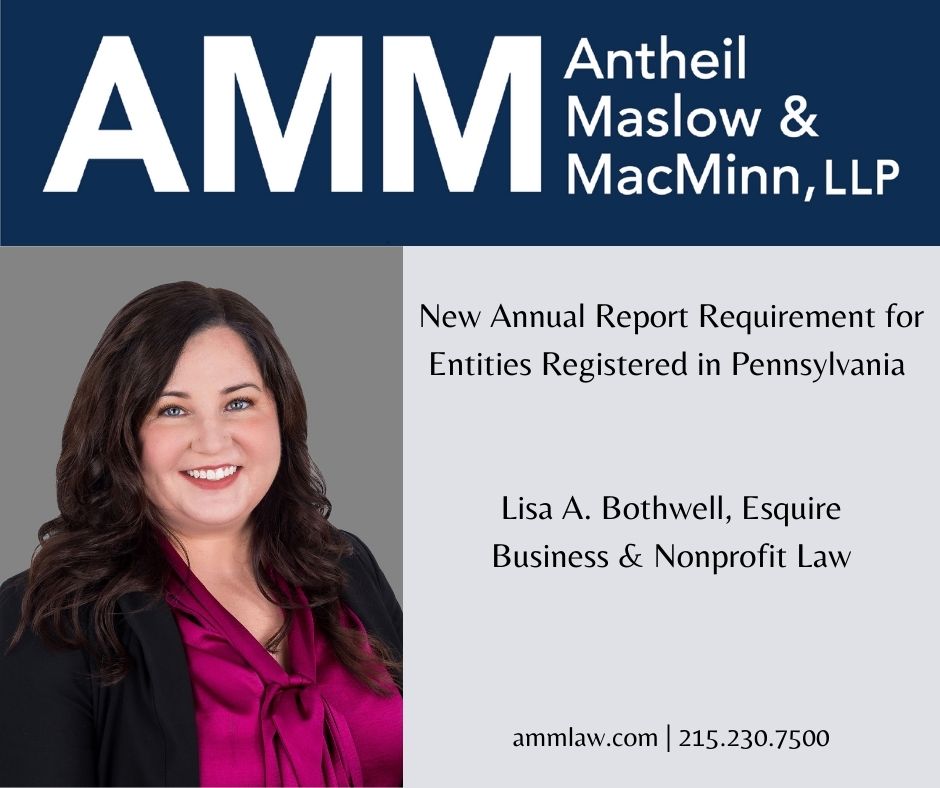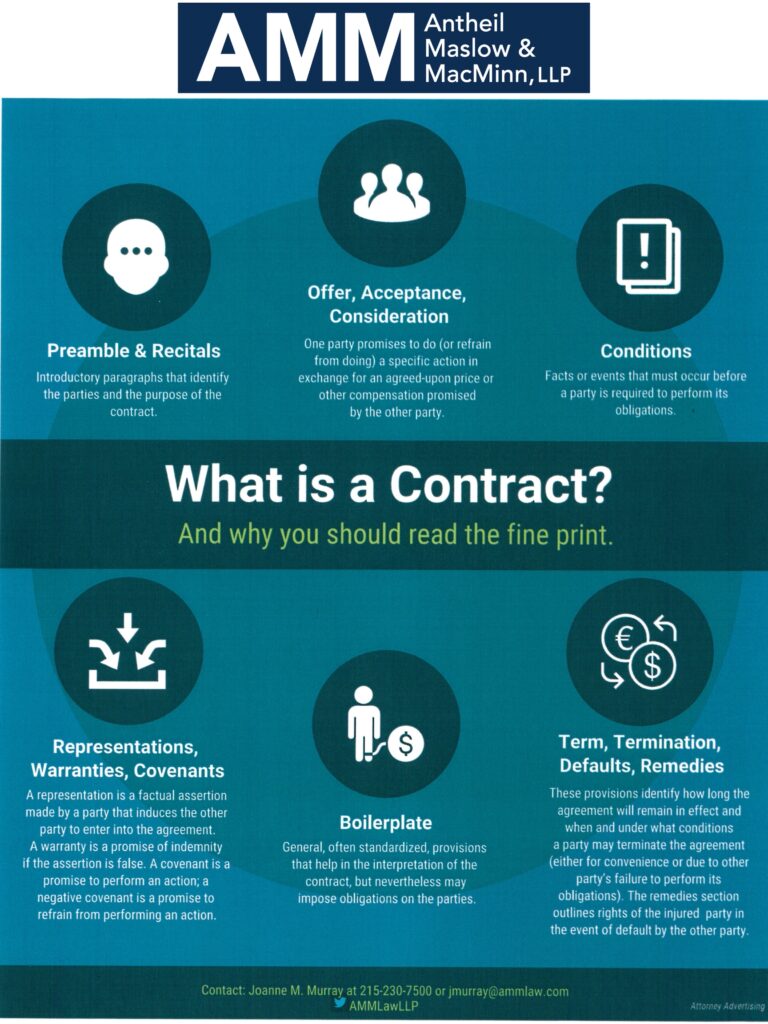Antheil Maslow & MacMinn, LLP, is pleased to announce that Abraham V. Frangie has joined the firm’s Business & Finance...
New Annual Report Requirement for Entities Registered in Pennsylvania
Pennsylvania’s Bureau of Corporations and Charitable Organizations has started contacting businesses regarding its new annual report requirement. Effective January 1,...
The Corporate Transparency Act: Injunction Remains in Place
As we reported in a previous client alert, the U.S. District Court for the Eastern District of Texas issued...
The Corporate Transparency Act: Latest Developments
As you probably heard, the U.S. District Court for the Eastern District of Texas issued a nationwide preliminary injunction on...
There is Life Insurance After Death – the Impact of Connelly v. United States
Attention owners of closely held businesses! A recent decision by the Supreme Court could impact the amount of taxes owed...
As Promised: Beneficial Ownership Reporting Requirements Went Into Effect January 1, 2024
For the past couple years, we warned you in our business law blog that this time would come. It’s...
They Are Here: Beneficial Ownership Reporting Requirements for Small Businesses Go Into Effect January 1, 2024
Last year, we warned you in our business law blog that a new law, the federal Corporate Transparency Act, would...
The ESG Backlash: Politics and Shareholder Primacy
Reprinted from the April 2023 edition of Business Law Today. Further duplication without permission is prohibited. By Susan A. Maslow...
Coming Soon: Beneficial Ownership Reporting Requirements for Small Businesses
On January 1, 2021, Congress enacted the Federal Corporate Transparency Act (the “CTA”), pursuant to which a secure database will...
No Safe Harbor in the “Contract Assurances” Required in the EU Directive Proposal
The European Commission published the long-awaited Proposal for a Directive of the European Parliament and of the Council on Corporate...
Balancing Buyer and Supplier Responsibilites in International Supply Chains
Model Contract Clauses to Protect Workers in International Supply Chains, Version 2.0 A working group formed under the American Bar...
2021 Decennial Report Requirements for Pennsylvania Entities
In 2021, entities formed in Pennsylvania and entities formed in other states that have registered to do business in Pennsylvania...
Business Implications of Divorce
When a business owner gets divorced, the business is often the major asset subject to distribution. Accordingly, the business and...
The Spark Bowl at Delaware Valley University: A Business Lawyer’s on Take Entrepreneurship
As a business lawyer, I have spent years counseling small to mid-sized companies across a wide range of industries. I...
From a Litigator’s Desk: Minority Business Ownership – Know Your Limits
Many an article or blog post concerns minority shareholder rights, shareholder oppression or shareholder “freeze out”. As business and litigation...
What is a Contract: Part 4: Representations, Warranties, Covenants – The Bones of the Agreement.
This is the fourth installment of my continuing blog series explaining the main elements of a contract, which are outlined...
What is a Contract: Part 3: Conditions – When Is a Promise No Longer a Promise?
This post continues my series explaining the main elements of a contract, which are outlined on the attached infographic. My...
Important Reminder for Home Improvement Contractors in Pennsylvania
In 2008, Pennsylvania enacted the Home Improvement Consumer Protection Act (HICPA) designed to protect home owners from unscrupulous contractors. However,...
No Hire Clause Called into Question
Many companies use restrictive covenant agreements with key employees to guard against economic harm to the company by an employee...
From a Litigator’s Desk: Keep Your Business Laundry In-house
Business partnerships are like marriages; sometimes they work great from the start and before you know it you are celebrating...
Owner Liability – Piercing the Veil
A corporation or limited liability company provides multiple advantages to business owners which is why business lawyers so frequently recommend...
What is a contract: Part 2: Offer, Acceptance, Consideration: What’s in it for you?
This post continues my series explaining the main elements of a contract, which are outlined on the attached infographic. My...
Before Signing That Commercial Lease – Have You Reviewed it with Counsel?
As a business owner, after spending countless hours researching and visiting commercial space, and finally finding the right location, you are often...
From a Litigator’s Desk: Key Questions to Consider in Commercial Litigation
People often ask, “What kind of lawyer are you?” After my stock (and feeble) comedic response of “a good one”,...













